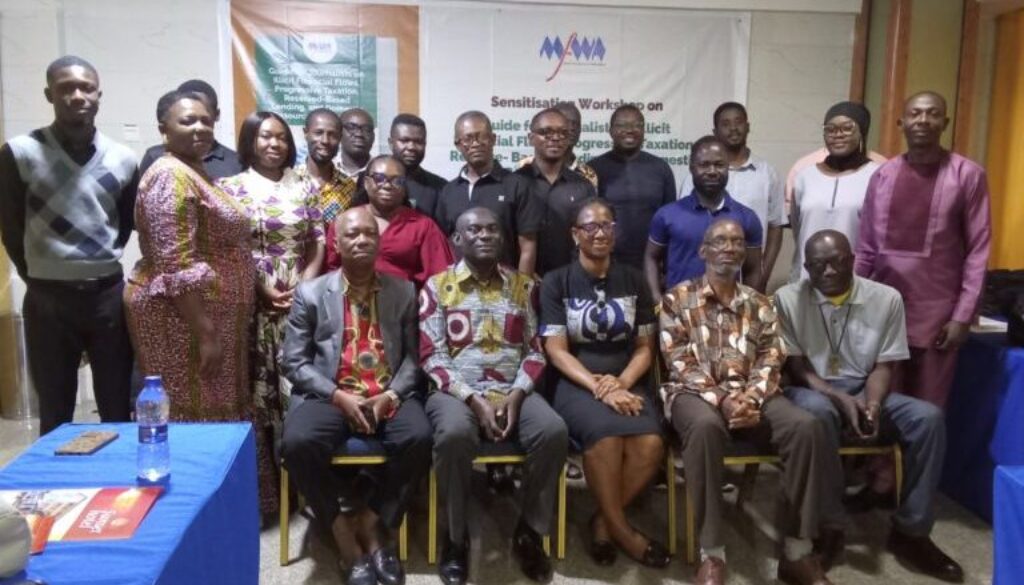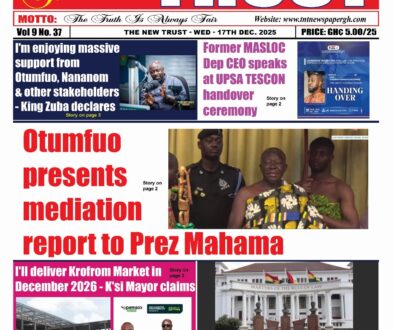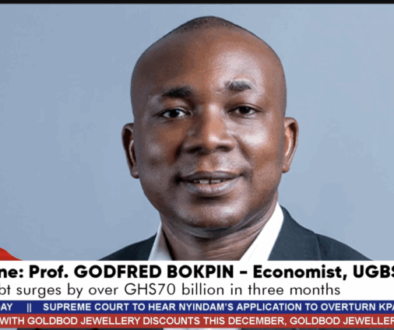MFWA holds sensitisation workshop on guide on illicit financial inflows reporting for editors, senior journalists in Ashanti
By Henry Ameyaw

The Media Foundation for West Africa (MFWA) and the Norwegian Agency for Development Cooperation (NORAD), in collaboration with OXFAM, have organised a sensitisation workshop for some news editors and senior journalists in the Ashanti Region.
The workshop served as a platform for editors and senior journalists to deepen their understanding of illicit financial flows (IFFs), and also improve their investigative skills on IFF cases.

Participants in a group photograph
The workshop held on Friday, 15th August 2025, at Sunset Hotel in Kumasi, focused on taking the media practitioners through a guide that focuses on how to report on IFFs, Progressive Taxation, Reserve-Based Lending and Domestic Resource Mobilisation.
In her opening remarks, Mrs. Rosemond Ebi-Adwo Aryeetey, Senior Manager of the Media for Democracy and Good Governance Programme at MFWA, stated that the workshop was an opportunity to reshape the guide into a resource that is representative, practical, and impactful.

Mrs. Rosemond Ebi-Adwo Aryeetey
She expressed appreciation to the participants for their insightful interactions and called for their continued collaboration.
In his presentation, Dr. Bishop Akolgo
Dr. Bishop Akolgo making presentation
, Director of Technology Integration Point Ventures and the Lead Consultant for the IFFs reporting guide, emphasised the importance of capacity building and access to credible sources in enabling the media to play its role in promoting transparency and accountability in economic governance.
He also made a range of suggestions for strengthening the guide, including making it a basic resource for general financial reporting rather than investigative work.
On his part, the Managing Editor of “The New Trust” newspaper, who represented the Private Newspapers and Online News Publishers Association of Ghana (PRINPAG), Mr. Isaac Amoah, emphasised that to create awareness on the use of the guide and make it accessible to the media fraternity in Ghana, MFWA has decided to hold the engagement for editors and senior journalists in selected regions.

Mr.Isaac Amoah making a presentation at the workshop
He believes that the guide has come at an appropriate time to help equip journalists with the skills and knowledge to investigate IFFs and tax evasion in Ghana, adding that the guide provides ethical frameworks, legal context and investigative techniques to help the media expose financial crimes that are costing Ghana an estimated $1.4–$3 billion annually, with the goal of promoting accountability and driving change in national development.
“I have reliably been informed that the guide is a comprehensive resource for journalists on how to investigate and report on IFFs, tax evasion, and other related economic issues like progressive taxation and domestic resource mobilisation,” he said.
Besides, it provides journalists with the necessary tools and information to uncover financial crimes and advocate economic justice.
Mr. Amoah, who is also a social policy analyst, indicated that the workshop was part of activities under the project titled: “Tax for Development: Strengthening Civil Society and Media for Fiscal Justice”, funded by NORAD through OXFAM in Ghana.
He, therefore, urged his colleague news editors and senior journalists to make a firm decision to support MFWA and its partners’ efforts at combating IFFs in Africa, especially in Ghana, so as to help save money for the needed development.
He said, “I believe that the guide will serve as a common reference point for our reporters, news editors, among other members working on IFFs. I hope this guide will ensure that every journalist or media house is on the same page so as to avoid misinformation and disinformation regarding reporting on IFFs.”
“Let’s all continue to remember and stick to the ethics of the journalism profession. This is the easiest way of ensuring balance or fair reportage devoid of inaccuracies and malice,” he added.
He, however, commended MFWA for, first of all, organising training workshops for news editors and senior journalists, including those in the Ashanti Region.
Besides, the foundation deserves commendation for following it up with a guide to make the work of both reporters and news editors working on IFFs-related issues smoother and easier.






